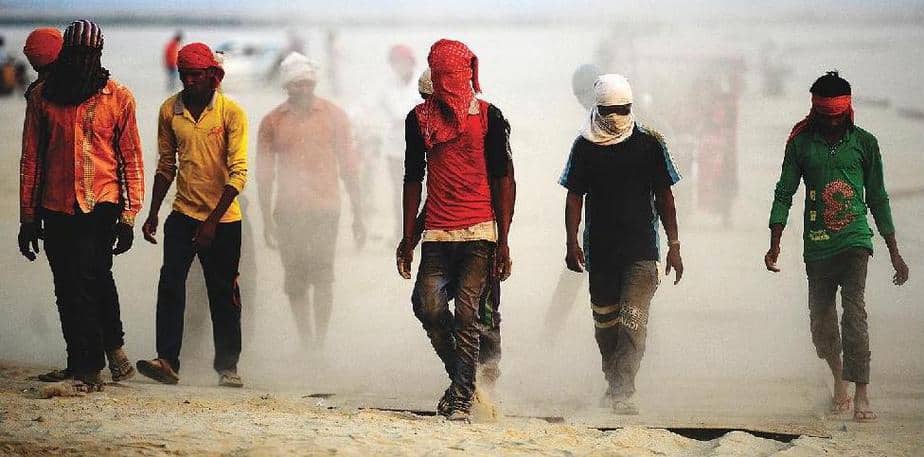With two cases against him still pending, it shows just how the present laws have not helped justice to be delivered or work as a deterrent. The previous cases against Reddy are from 2016, one where he had lured people for road construction work in Karnataka, and second where he took people to Rajasthan, again for road construction. In both cases, the sections slapped on him are the Schedule Cast and Schedule Tribe (Prevention of Atrocities) Act, and the Bonded Labour System (Abolition) Act. A CHANGE IN LAW The Trafficking of Persons (Prevention, Protection and Rehabilitation) Bill, 2018, which has been passed by Lok Sabha, hopes to make the fight against trafficking stronger, and cover all loopholes that let people to get away with abuse. It will be India’ first comprehensive antitrafficking law, which will finally take concrete steps to fight an abuse that is taking place systematically in the county. The government’s plan to rescue 18.4 million bonded labourers by 2030, provides a view of how rampant the problem is.
The bill prescribes strict penalties for various offences of trafficking, with punishment for aggravated trafficking, like bonded labour, punishable with a rigorous imprisonment of 10 years up to life imprisonment, along with a minimum fine of one lakh rupees. The bill provides for setting up of designated courts in each district, which will seek to complete trial within a year. In Reddy’s case, if the case would have gone to trial and seen him convicted, the others who got caught in the net of bondage, could have been spared. What is also very important in the bill is the setting up of a national anti-trafficking bureau. The major source states of bonded labour in the country are Odisha, Bihar, Jharkhand, West Bengal and Chhattisgarh, and the biggest destination states are Tamil Nadu, Andhra Pradesh, Karnataka, Odisha, and Uttar Pradesh. Thus an inter-state link-up is one of the most important aspects of such a mission.
But a state-wide bureau will perhaps not be able to stringently check each and every person leaving the district. That is why the bill says an AntiTrafficking Unit will be established at district level, so that there is a major impact. All cases of bonded labour do not take place in big numbers, sometimes it’s a lone boy or a girl or two.
One example is of a few adolescents Patriot met, who had been taken from their homes and put to work as shepherds. One of them was Mohan from Madhya Pradesh. When his father fell ill he was sent to work to look after sheep, rearing, and grazing them. The 15-year-olds family was paid an advance of R5,000 for him to work for a month but was not freed until seven months later, when found by rescue workers.
Mohan says he and another boy called Dilip, were made to work night and day, sometimes they would not stop to rest. From Madhya Pradesh, they reached Rajasthan. In all this time, he says, they were fed only dry rotis and chillies, while the boss ate well. They were made to sleep on the ground, even when it was wet. He kept repeating, during our conversation, that they would be beaten frequently.

